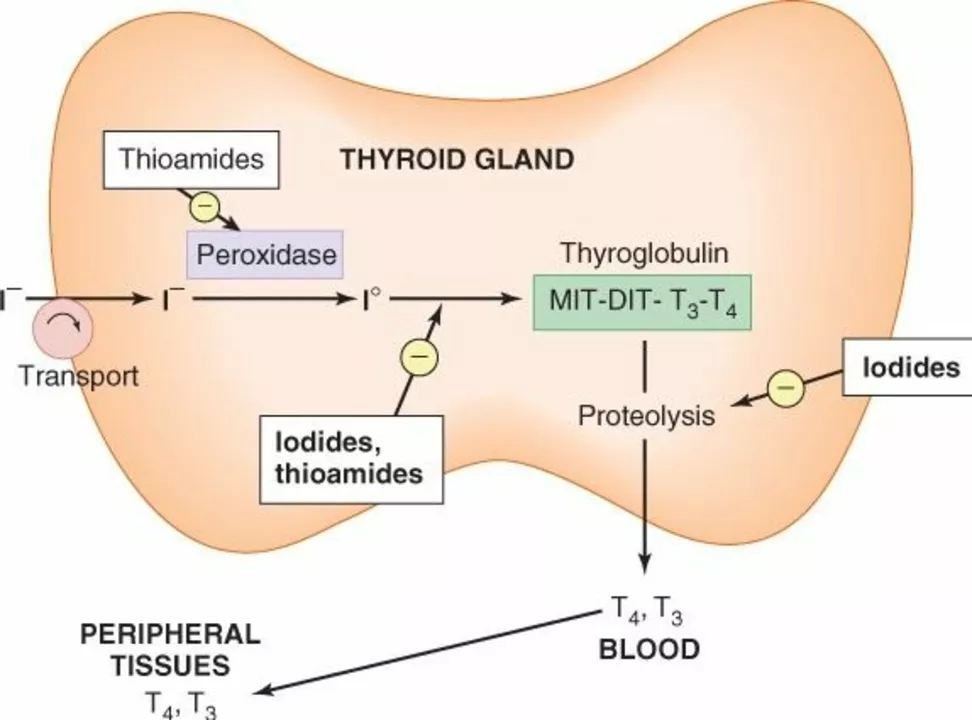Thyroid Health: Signs, Tests, and Simple Daily Care
Worried about your thyroid? You're not alone. Thyroid issues — both underactive (hypothyroidism) and overactive (hyperthyroidism) — can quietly change your energy, weight, mood, and more. This page gives practical steps you can take now: what to watch for, which tests matter, and daily habits that make a real difference.
Common symptoms and when to test
Ask yourself: have you gained weight without changing your diet? Feeling cold, tired, and slow could point to an underactive thyroid. If you’re losing weight fast, anxious, sweating more, or your heart races, that can signal an overactive thyroid. Hair loss, dry skin, constipation, and trouble concentrating are other clues.
If symptoms match, start with a simple blood test: TSH and free T4. Those two give a clear first look. If results are unclear or symptoms persist, ask your doctor for free T3 and thyroid antibody tests (TPO antibodies) — they help spot autoimmune causes like Hashimoto's or Graves' disease.
Treatment basics and everyday tips
For hypothyroidism, levothyroxine is the standard treatment. Take it on an empty stomach — ideally 30 to 60 minutes before breakfast — and be consistent about the time each day. Avoid taking it with calcium, iron, or magnesium supplements; these lower absorption. If you drink coffee, wait at least an hour after your pill.
Hyperthyroidism often gets treated with medications (like methimazole), beta blockers for fast heart rate, or procedures such as radioactive iodine. Treatment choice depends on how severe the condition is and your personal goals — talk this through with an endocrinologist.
Pregnancy changes thyroid needs. If you’re pregnant or planning to be, tell your provider early. Small dose adjustments are common because thyroid hormones affect fetal development.
Watch out for extreme symptoms that need urgent care: very fast heartbeat, chest pain, high fever, sudden confusion, or severe weakness. These could be signs of thyroid storm (in hyperthyroidism) or myxedema coma (in severe hypothyroidism) — both are emergencies.
Diet and supplements matter but don’t overdo it. Iodine is essential, but too much can trigger problems. Don’t start large iodine supplements without medical advice. Selenium sometimes helps in autoimmune thyroiditis, but talk with your doctor before starting any new supplement.
Keep follow-up simple: after starting or changing thyroid meds, check levels in 6-8 weeks, then every few months until stable. Once stable, most people test every 6-12 months unless symptoms change. Track your symptoms and medication timing — little details help your clinician fine-tune dosing.
Want a quick next step? If you suspect thyroid issues, book a blood test for TSH and free T4, write down your symptoms and medication schedule, and bring that to your appointment. Small steps now often prevent bigger problems later.

